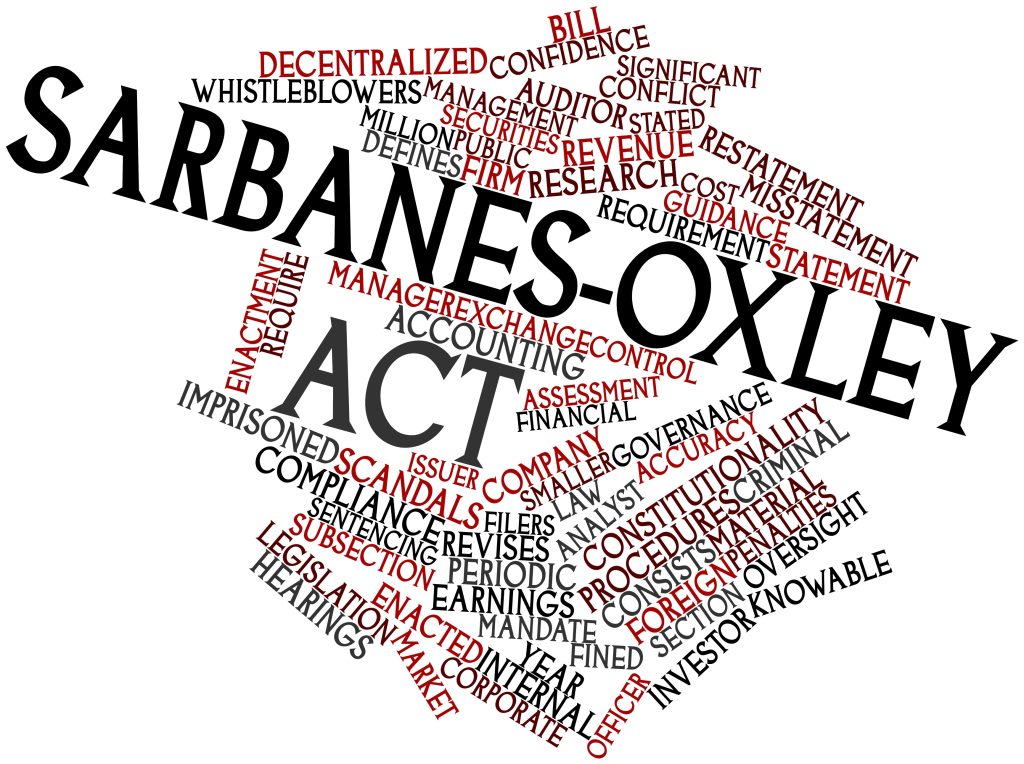
The Sarbanes-Oxley Act (SOX)
The Sarbanes-Oxley Act is a United States federal law that was passed in 2002 to strengthen corporate governance, improve financial disclosure, and increase investor confidence. It was primarily a response to several high-profile corporate scandals and frauds. In addition to regulating financial reporting and internal auditing at publicly traded companies, the act also strengthened the independence of corporate boards and increased whistleblower job protection.
The Sarbanes-Oxley Act also created new standards for public accounting firms. All public accounting firms that audit publicly traded companies must be registered with the Public Company Accounting Oversight Board (PCAOB). This agency investigates the compliance of all registered public accounting firms.
Besides enforcing the standards, the Sarbanes-Oxley Act also provides penalties for companies that don’t comply. Failure to meet the Act’s requirements may result in fines and imprisonment. There are also provisions for compensatory damages for violations.
The Sarbanes-Oxley act is a critical tool to strengthen accountability, corporate governance, and investor confidence. While there are some detractors of the law, its implementation has helped improve the integrity of financial reporting. Among its many components, it establishes new criminal offenses for white-collar crimes. It also increases the stakes for liability for officers and directors who fail to disclose material information.
In order to achieve compliance, companies need to establish and implement a complete and comprehensive risk management framework. In particular, the SOX requires companies to develop formal data security policies and procedures. These include storing digital records for five years and ensuring they are protected from unauthorized access. Also, there are specific instructions on the types of records to be retained.
The SOX also requires that publicly traded companies verify the accuracy of their financial reports, and that the chief executive officer (CEO) attest to the reliability of these reports. Moreover, it holds the CEO personally liable if a corporation fails to provide reliable financial statements. Additionally, it increases the penalties for fraudulent reporting.

The Sarbanes-Oxley law was passed in response to the corporate scandals of the early twenty-first century, including the WorldCom and Tyco International accounting frauds. Several business leaders acknowledged that the existing regulations were lacking, and a new framework was needed to improve the financial reporting process. President George W. Bush compared the SOX to the business reforms of the FDR era.
SOX requires all public companies to store electronic records for at least five years. It also requires that all officers maintain proper internal controls for financial reporting. For example, it requires that the CEO or board of directors ensure that the company is in compliance with any relevant laws and regulations.
The SOX law has an impact on all types of businesses in the United States. In particular, the Act has affected the IT department of organizations and has made it necessary for these organisations to implement new security measures and internal processes. As a result, it has reestablished trust in U.S. companies, increased capital markets access, and improved collaboration.
